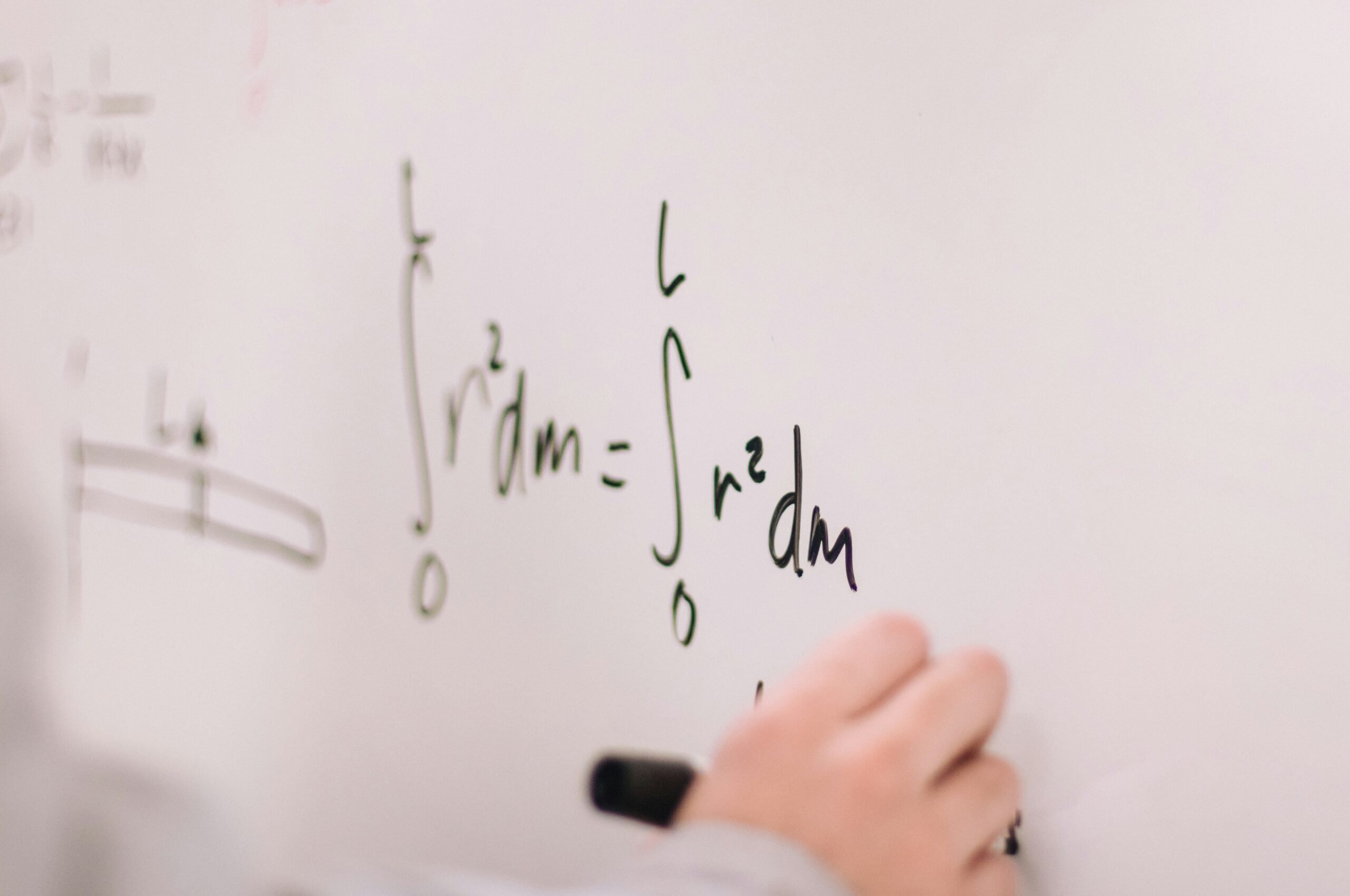Are you ready to tackle one of the most fascinating yet challenging subjects in mathematics? Linear Algebra is more than just equations and matrices; it’s a vital component that shapes various fields, from engineering to data science. If you’re planning to transfer your Linear Algebra GT credits, you’ve landed at the right place. This blog post will guide you through essential tips that can make your transition smoother and set you up for success in mastering this critical subject. Whether you’re a future engineer or simply curious about the world of vectors and transformations, understanding how to navigate this journey will empower you every step of the way. Let’s dive into what makes transferring Linear Algebra GT both beneficial and achievable!
What is Linear Algebra and Why is it Important?
Linear Algebra is a branch of mathematics that focuses on vector spaces and linear mappings between these spaces. At its core, it studies vectors, matrices, and systems of linear equations.
Understanding Linear Algebra equips students with powerful tools to analyze data and solve complex problems. It forms the backbone for various applications in physics, computer science, economics, and engineering.
In our data-driven world, mastering this subject opens doors to advanced topics like machine learning and optimization. Companies increasingly rely on professionals who can interpret large datasets through mathematical frameworks.
Moreover, the skills gained from studying Linear Algebra enhance critical thinking and problem-solving abilities—essential traits in any field. Whether you’re modeling physical phenomena or developing algorithms for artificial intelligence, knowledge of Linear Algebra proves invaluable across disciplines.
The Benefits of Transfer Linear Algebra GT Credits
Transferring Linear Algebra GT credits offers significant advantages for students. It allows you to streamline your academic journey, making it easier to focus on upper-level courses.
With these credits, you can save time and money. This means fewer semesters in school and reduced tuition costs overall.
Moreover, mastering linear algebra opens doors to various fields such as engineering, computer science, and economics. The skills gained through this course are universally applicable.
Additionally, transferring these credits enhances your transcript. A solid foundation in linear algebra demonstrates analytical thinking – a quality that many employers value highly.
The process of transferring encourages networking opportunities with peers who share similar educational goals. Making connections during this stage can lead to collaborative study sessions or group projects down the line.
Researching Transfer Linear Algebra GT Policies and Requirements
Before embarking on your journey to transfer Linear Algebra GT credits, it’s crucial to dive into the specific policies of your target institution. Each school has its own set of guidelines that dictate which courses are eligible for transfer.
Start by visiting the admissions section of their website. Look for information regarding credit transfers, especially related to math or engineering departments. It’s also wise to check if there are any restrictions based on grade requirements or course equivalencies.
Don’t hesitate to reach out directly for clarity. Academic advisors can provide insights that might not be readily available online. They can help clarify complicated terms and give you an idea of how your current coursework aligns with their curriculum.
Being well-informed about these policies will empower you as you prepare for this transition in your academic career.
Making a Plan: Mapping out Your Transfer Journey
Transferring your Linear Algebra GT credits requires a solid plan. Start by identifying the institutions you’re interested in. Research their specific requirements for transferring courses.
Once you’ve narrowed down your options, create a timeline. Note key application dates and deadlines to ensure you’re on track. This helps prevent last-minute rushes that can lead to errors or missed opportunities.
Next, outline which documents you’ll need—transcripts, letters of recommendation, or personal statements may be involved. Gather these early to avoid delays as you get closer to submission time.
Don’t forget about course equivalencies! Compare syllabi from both institutions to see how your credits will transfer effectively. Understanding this can save you time and money in the long run.
Stay flexible throughout the process. Plans may change based on new information or unexpected challenges that arise along the way.
Preparing for Linear Algebra GT Exams
Preparing for Linear Algebra GT exams requires a strategic approach. Start by understanding the exam format. Familiarizing yourself with the types of questions can reduce anxiety and improve performance.
Create a study schedule tailored to your needs. Break down topics into manageable sections, focusing on one concept at a time. This helps reinforce learning and ensures you cover everything before exam day.
Practice is essential. Work through past papers or sample problems regularly. This not only builds confidence but also highlights areas where you may need extra help.
Don’t hesitate to reach out for clarification on challenging concepts. Joining study groups can foster collaboration and provide multiple perspectives on complex topics, enhancing your overall comprehension.
Prioritize self-care during this busy time. Adequate rest and nutrition play key roles in keeping your mind sharp and ready for success.
Utilizing Online Resources for Supplemental Learning
Online resources can be a game changer when diving into Linear Algebra GT. Websites like Khan Academy, MIT OpenCourseWare, and Coursera offer free or affordable courses that break down complex concepts into manageable lessons.
YouTube channels dedicated to math education feature engaging tutorials that visualize problems in real time. Seeing these concepts in action often makes them easier to grasp.
Forums such as Stack Exchange provide platforms where you can ask questions and interact with peers who share similar challenges. Engaging with a community helps reinforce your understanding through discussion and collaboration.
Don’t forget about study groups on social media platforms. Joining or creating groups allows for sharing resources, tips, and motivation while preparing for exams together.
Taking advantage of these online tools enhances your learning experience beyond the classroom setting.
Seeking Support and Networking Opportunities
Connecting with peers and mentors can significantly enhance your learning experience in Linear Algebra GT. Engaging with others allows you to share knowledge, clarify doubts, and gain different perspectives on complex topics.
Consider joining study groups or online forums dedicated to mathematics. These platforms create a collaborative environment where you can exchange ideas and tackle challenging problems together.
Don’t overlook the value of networking events hosted by academic institutions or professional associations. Attending workshops or seminars can introduce you to industry professionals who may offer guidance or even career opportunities related to your field of interest.
Reach out to professors during office hours. They have a wealth of knowledge and experience that could provide invaluable insights into mastering Linear Algebra while navigating your transfer journey. Building these connections is crucial for both academic success and future endeavors.
Conclusion
Transferring Linear Algebra GT credits can significantly enhance your academic journey. By understanding the fundamentals of linear algebra, you set a solid foundation for various fields like engineering, physics, and computer science. The benefits of transferring these credits are clear; they not only streamline your education but also expand career opportunities.
Researching transfer policies is essential to ensure a smooth transition. Knowing the requirements helps avoid roadblocks that could delay graduation. Mapping out your transfer journey involves setting realistic goals and staying organized throughout the process.
Preparing effectively for exams cannot be overstated. Utilize online resources to supplement your studies, as they provide valuable practice and deeper insights into complex topics. Seeking support from peers or mentors offers additional guidance that can make all the difference in mastering challenging concepts.
Embrace this opportunity to advance your learning experience in linear algebra while opening doors for future success in your chosen field.



